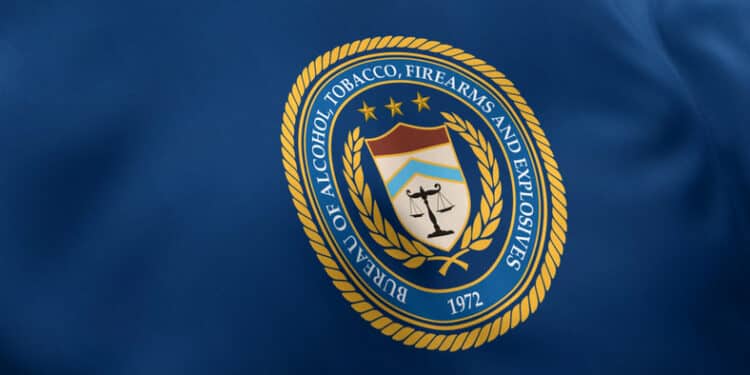On February 12, Senator Chuck Grassley (R-IA) sent letters to the Bureau of Alcohol, Tobacco, Firearms and Explosives (ATF) and the United States Department of Justice Office of the Inspector General (DOJ-OIG) regarding the issuance of a memo that threatened ATF employees with disciplinary action or criminal charges for unauthorized disclosure of unclassified information.
“The ATF memo fails to explicitly inform ATF employees of their Constitutional and statutory right to make protected disclosures of wrongdoing and misconduct to Congress, inspectors general (IG), and the Office of Special Counsel (OSC),” wrote Grassley.
The Prohibited Discourse of Unclassified, Sensitive Information Without Proper Authorization memo was sent to ATF employees, threatening penalties for disclosing agency information. The AFT memo highlights an example of a former employee found guilty and subjected to criminal charges, stating, “Within the past year, an ATF employee pleaded guilty and was criminally convicted in federal court of theft of government records related to SBU information.”
The memo fails to mention employees’ right to disclose information to entities that will pursue an investigation against misconduct. Grassley claims that this omission violates the Whistleblower Protection Act.
“These failures inappropriately imply that disclosure of information to Congress, IGs, and the OSC is unauthorized,” writes Grassley. “The ATF is in violation of the law and must immediately cure its defective memo.”
“Failing to inform employees of their right to blow the whistle causes a chilling effect throughout the agency, weakening accountability,” says whistleblower attorney Stephen M. Kohn of Kohn, Kohn & Colapinto. “Time and time again Senator Grassley has stood up for whistleblower rights and we are grateful to see him do so again here.”
Grassley continued: “It takes a lot of guts for whistleblowers to stick their necks out to report wrongdoing. That’s why I’ve led a crusade to enact whistleblower protections and incentives into law that empower them to come forward without fear of retribution or reprisal.”
Grassley demanded that ATF “immediately transmit updated guidance informing ATF employees of their Constitutional and statutory rights to make legally protected disclosures to Congress, IGs, and the OSC.”
Senator Grassley has a long and impressive history of protecting whistleblowers and acknowledging that whistleblowers are essential to ensuring government entities act transparently and secure accountability. His advocacy for whistleblowers has included:
- modernizing the qui tam whistleblower provisions of the False Claims Act,
- drafting an award measure for the IRS Whistleblower Program,
- advocating for the creation of whistleblower programs within the SEC and CFTC.
He also co-authored legislation that targeted the extension of protection for federal employees, such as the Whistleblower Protection Act (1989) and the Whistleblower Protection Enhancement Act (2012). These same workplace protections established in the private sector or executive branch were replicated in the Congressional Accountability Act (1995), which protects legislative workers’ rights, health, safety, and accessibility.
“Grassley’s career is a testament to the prioritization of enforcement and accountability that has laid the groundwork for future pro-whistleblower successors,” added Kohn.




